Paul and I arrived at the Hong Kong airport three hours ahead of time for our flight home. We waited forty-five minutes for the United check-in desk to open to get our boarding passes. For whatever reason, the self-serve kiosks were not working. The last fifteen minutes of our wait I tried to calm myself.
One by one, United employees came out to their desks, but didn’t open. Logically, I know there is plenty of time to get the passes, pass through security and get to our gate, but my heart rate is already increasing. I bow my head and stare at my shoes, tracing the lines that make up the shoe’s design. I close my eyes and take several deep breaths to calm myself.
The deep breaths don’t really calm me. They are a distraction to keep me from screaming. I really only start to feel better when Paul says, “Okay, now I’m starting to get annoyed.”
Finally, the clerks begin to motion for people to approach them. We get our boarding passes for all three legs of our journey and head through security. It’s an easy and relatively painless affair for me. Paul gets caught up in the process. He doesn’t do well with technology. I yell back through the line and explain to him how he needs to place his passport to go through security. This is all self-serve and automated. A lady eventually comes over to help him and he makes it through.
We grab a quick bite to eat, literally. I wasn’t hungry, but I ate a few bites of my sandwich. Paul ate the other three-fourths. Then, we headed to a sweets shop to purchase chocolate. Paul wants the biggest Toblerone we can find. After bogging ourselves down with a year’s worth of chocolate, we head to our gate and wait for boarding to begin.
As I stand in the boarding group three line, I look down the gangway to the plane. Halfway down, passengers are being stopped while their hand luggage is manually searched. I thought it was random, but every passenger is being stopped as part of some U.S. mandate for all flights heading to America.
Paul and I are separated. I have the only key to the locks on our luggage. I stroll over to give him the key and get it back again to unlock my luggage. Although it appears this is supposed to be a serious search, it’s a joke.
“Do you have any liquids?” a man asks me.
“No.” I reply. It’s not totally the truth, but whatever.
“Okay. Thank you, ma’am,” he said.
I’m confused. My dead grandma could perform a better search of luggage. Paul and I are ushered into the plane.
We stow our luggage and take our seats. 11:15 a.m., comes and goes. The pilot says we have to reroute around some bad weather and we will leave the gate shortly. He assures us this new route will save time and we will arrive in San Francisco early.
The clock keeps ticking. I am not worried. I have purposely chosen a five hour and twenty minute layover.
Just before noon, we pull away from the gate. The pilot says we will be on our way soon. We taxi along the tarmac for a few minutes and stop. We wait some more. The pilot informs us there is a minor maintenance issue.
It will be fixed soon.
As time passes, the pilot tells us he’s convinced there’s a workaround and ground crews will arrive soon to double check.
I do some quick math in my head. We still have time to make our connecting flight. Time marches on.
Crews are still on the ground when the pilot explains the problem to us. His rudder pedal isn’t working correctly, but there is a workaround. He’s confident we can fly. We’ll be on our way soon.
Soon.
We have been on the tarmac for more than three hours. I’m no longer sure we can make our connecting flight.
I’m not annoyed, but I can’t focus on anything. I try to take a nap, but it doesn’t work. The pilot comes back over the intercom and assures us that, as soon as San Francisco approves, we’ll be on our way. He just has to convince them of his workaround.
Two minutes later, a flight attendant announces our flight is canceled. A collective, loud groan is heard
throughout the plane. Two seconds later, an overwhelming sense of dread comes over me.
I lean forward and place my head in my lap. I clasp my hands on the back of my head and rest my elbows on my legs. The tears are coming. I find it hard to breathe. I squeeze my eyes shut and force the tears to stop.
“You know it will be okay,” Paul says. He puts his left hand on my leg. “They have to put us up and feed us.”
I know. That knowledge does not change my physical reaction.
I have to keep it together. I already know I will have to take care of everything. I will have to sort out where we are going once we are off the plane. I will have to call the airline. I will have to arrange for our cats to be taken care of for another day.
I sit up and bang my head against the side of the plane. Passengers have already stood up and grabbed their carry-on luggage. We are all waiting for buses to arrive to take us back to the airport.
The pilot apologizes they are not here yet. He promises they will be here soon and asks us to be patient.
We get on the third bus. It takes us back to the terminal. I have spent the better part of the last thirty minutes trying to take deep breaths and slow my breathing.
Inside the airport, we’re sent up an escalator to talk to a United representative who we are told is waiting for us.
The escalator opens to a large area filled with hundreds of people. We don’t see anyone from United. None of us know where to go. There is a slight, collective panic among the passengers. We are all looking around trying to determine what we are supposed to do as United Airlines has left us all swinging in the wind.
Eventually, enough people shift around and we see three beleaguered United representatives explaining what we need to do. Three people to help three hundred. It’s an unorganized mess.
I ask Paul to ask the questions. I can only comprehend part of what this lady is saying to us. Paul and I get the information we need. We have to go through immigration and then find B01, whatever that is. We end up asking a representative from Cathay Pacific where to go. His directions are clear and precise.
At B01, which is a counter outside of immigration, we’re pointed toward another counter. My breathing is shallow and rapid. I tell Paul he needs sort the rest of this out. My mind is no longer thinking clearly.
We are grouped with several people from our flight to head back into Kowloon where we will be put up for the night. When we left Kowloon this morning, I used the last of my toothpaste and deodorant. I begin to wonder how I will solve this problem. We walk for ten minutes to the shuttle bus. The ride to Kowloon takes 45 minutes.
I still haven’t been able to contact anyone to see if they can look after my cats.
I start to think about my interview on Monday with Faith Mills. Logically, I can send an email to ask another reporter to cover the story. None of that matters. All I can think of is if we are delayed or canceled again, I won’t be able to do my job. My mind is on my starving cats and losing my job. There is no logic.
Paul tries to make a joke on the shuttle bus. “Hey look. We’re visiting Hong Kong again.” I shoot him a look.
He’s smiling. He says something else. I hear the words, but their meaning does not register. “Enough,” I say. Paul is just trying to lighten the mood, but my mind is somewhere else.
We arrive at the hotel at just before 5 p.m. I have not had anything to eat or drink for nearly eight hours. We are told dinner begins at 6:30 p.m. As a diabetic, I know my blood sugars are messed up. I need food. I’m hungry now. I’m tired.
It’s becoming harder to breathe. I just want to get to the room. I need to be away from people.
We get in the elevator with our fellow passengers. They’re all upset, but clearly handling it better than me. As we get off on the 19th floor, the stench of dirt strikes us. The carpets are old and reminiscent of 1970s decorating.
We walk into room 1924 and a musty scent hits our nostrils. It’s more than a musty smell. That’s mildew. I’m allergic to that. The carpet from the hallway follows us into the room. Everything is dated. There is mold above the air conditioner. I’m going to breathe this all night.
Our room has two single beds.
My eyes well up, but I keep the tears from falling. I ask Paul to please call United Airlines on the free cell phone in the room. He tries, but can’t figure out how to “press 3” to get to the right operator.
At the same time, I pull my laptop out and log online via the free wifi to check my email and get our flight confirmation number. I follow the steps on the screen. It appears we’ve been automatically rebooked, but we still need to confirm.
Paul puts the phone on the bed. He doesn’t hang up. He says he can’t make the call and doesn’t know what to do.
I pick up the phone in time to hear the recording say it was disconnecting me. I hang up the phone. I stare at it, trying to think what I am supposed to do next. I do not want this thing in my hand. I toss it across the room. I say something, but I don’t know what. The phone bounces on the bed. Instead of going straight and hitting the wall, it angles to the left and hits Paul in the arm.
“What the hell?” he says. I am not listening. I’m crying, but I am also happy the thing is not in my hand anymore. I can’t breathe. I have to. I need to sort out our flight for tomorrow.
I pick up the phone. I squeeze it tightly, but it doesn’t break. I call United, press 3, and wait for ten minutes. My ordeal is made worse by the terrible music that is periodically interrupted by a lady who tells me all representatives are helping other customers and they will be with me soon.
Soon.
The lady on the phone says we are re-booked. We just need to get our new boarding passes at the United counter in the morning.
I tell Paul I’m tired of this happening. It doesn’t make sense. It isn’t logical. Yet my brain continues to fuck with me.
“You know it will be okay though, right?” he asks.
“Knowing and feeling are two different things,” I say. My brain can’t even think logically enough to sit on the chair or the bed. I am sitting on the floor.
“Can’t you stop it?”
“I don’t know how right now.”
“Well, that was really bad.”
“I know.”
It is still another hour before dinner. I’m hungry now. I have no choice but to suffer with the hunger pangs.
At 6:25 p.m., we head down to the elevators.
“This hotel looks old,” Paul says.
“It smells old,” I say.
“I keep waiting for Norman Bates to come down the hallway,” Paul says.
The elevator dings and the doors open. We are both determined to eat as much as we can to stick it to United.
At dinner, I tell Paul that, if I had been alone, I would have broken down in the hotel room.
“Really?” he says. “Damn.”
I give Paul my durian pudding. The taste is worse than the smell. He agreed, but still ate it.
More in the final part of our Hong Kong story.

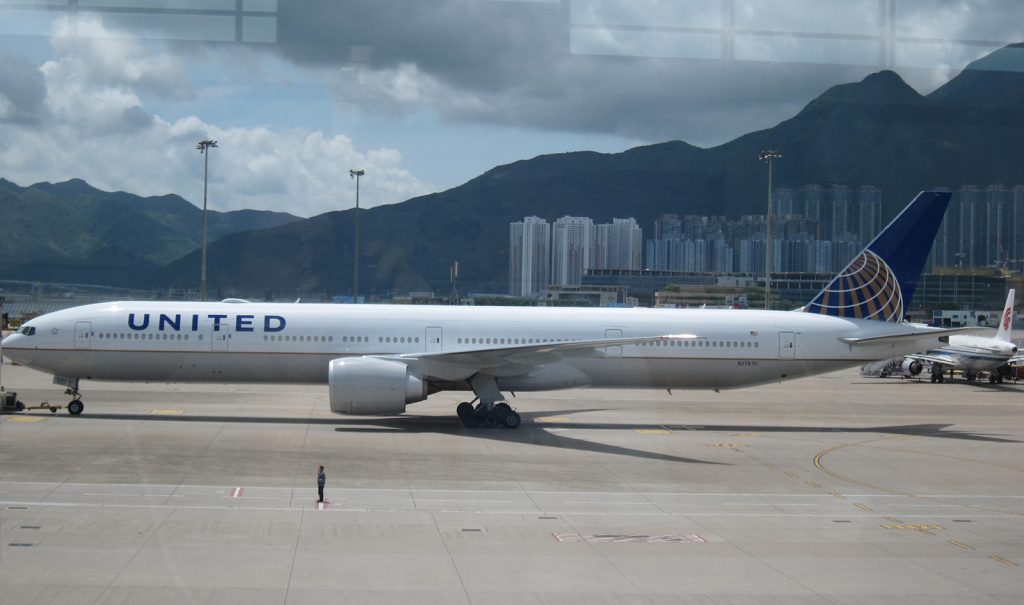
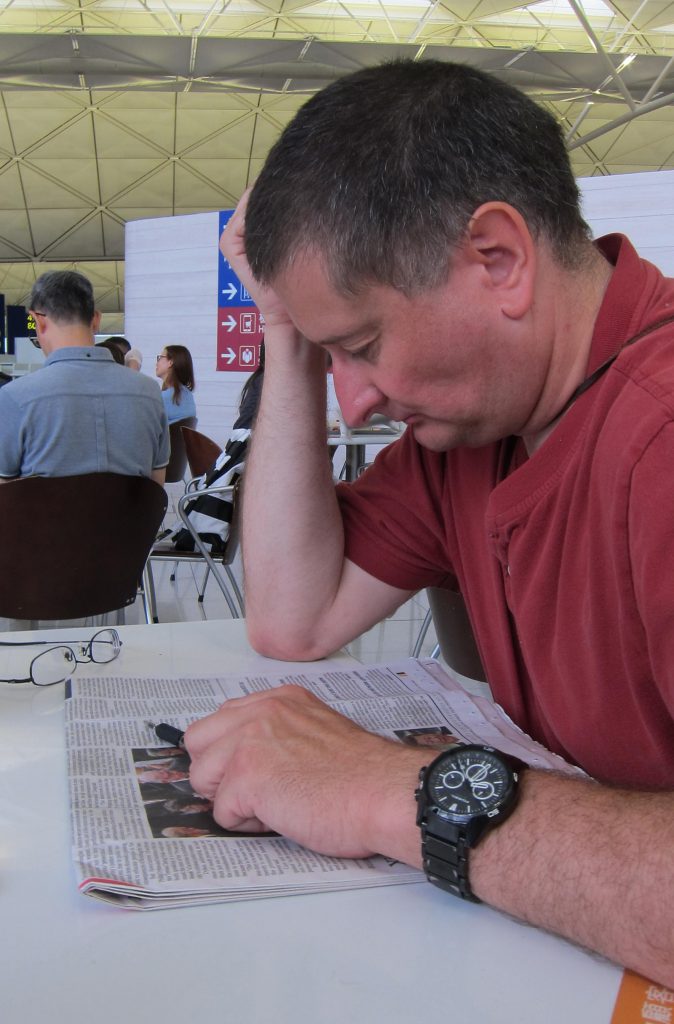
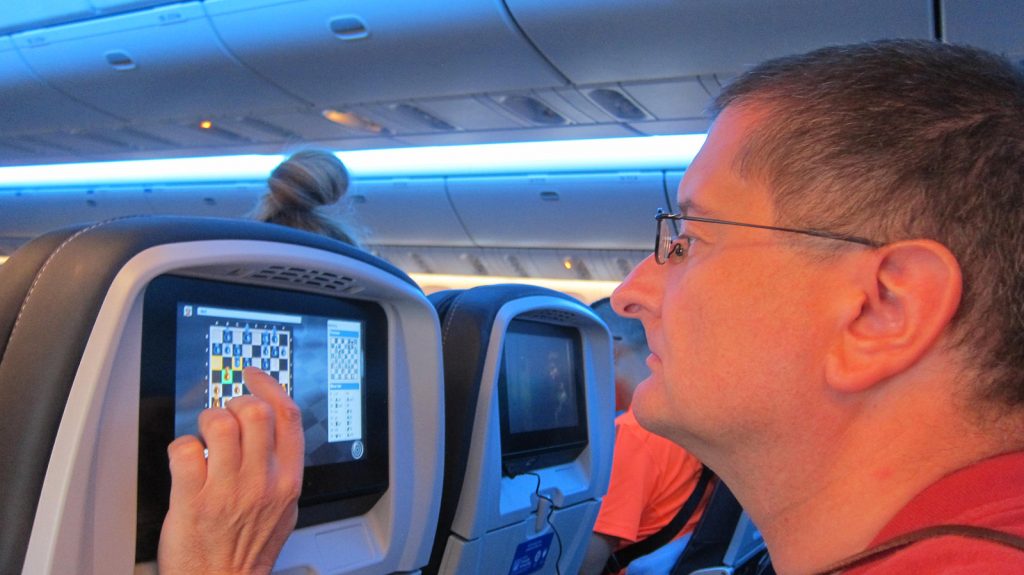
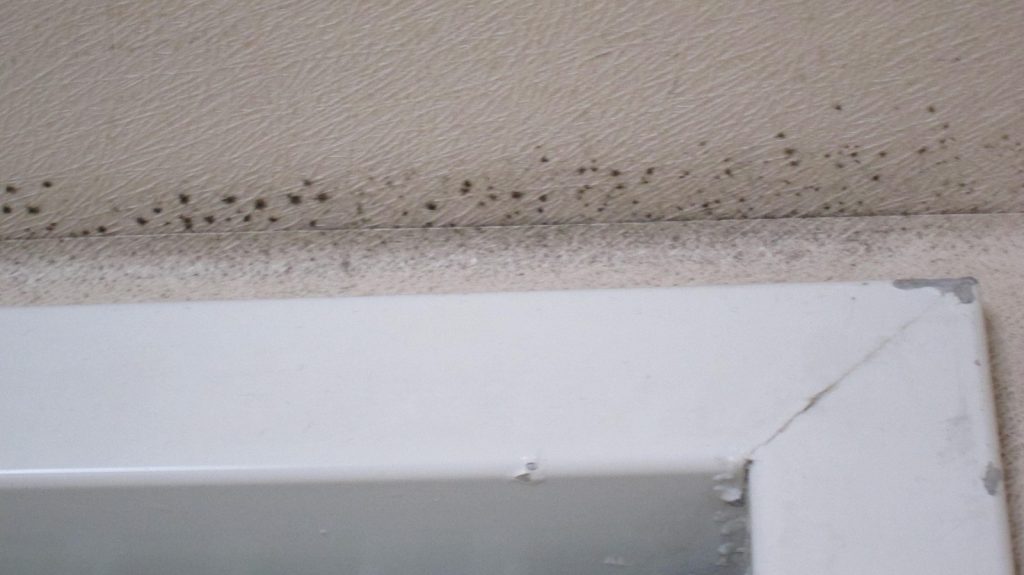
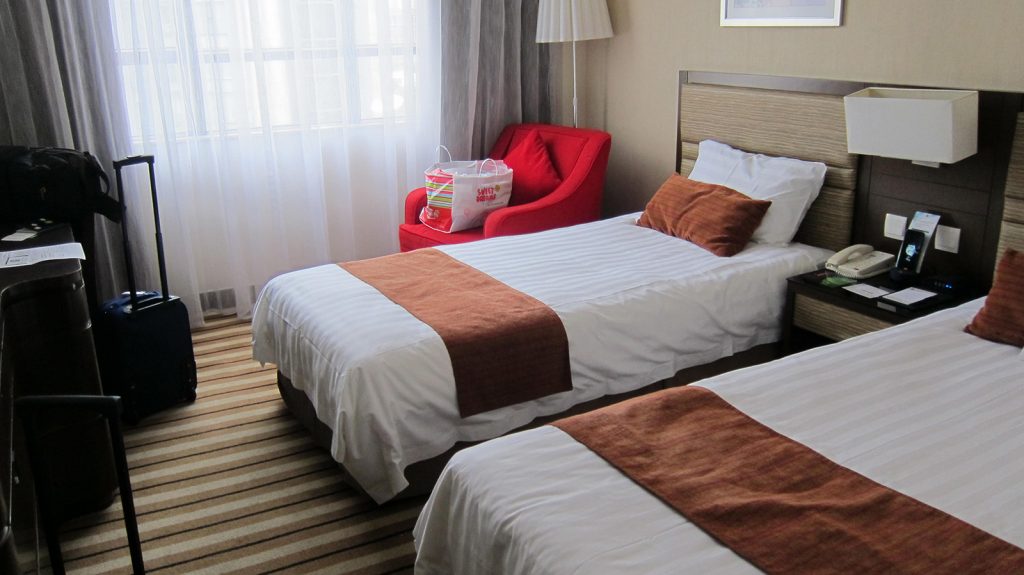
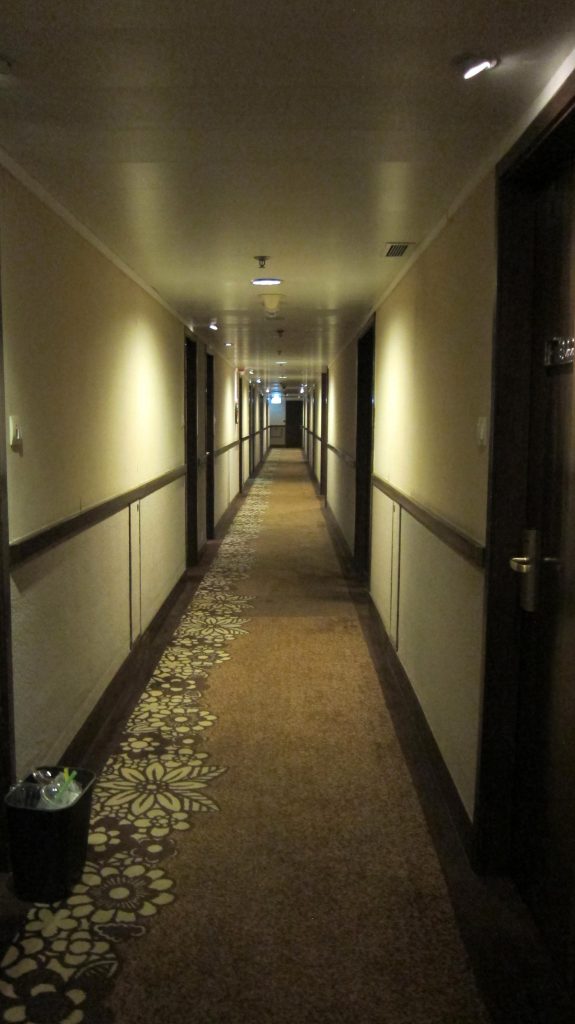
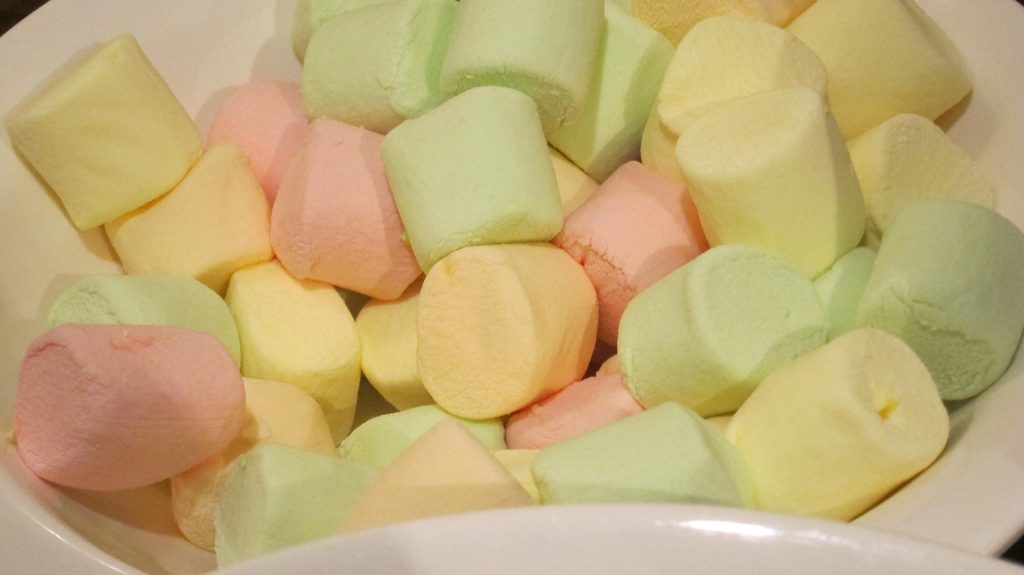
1 Pingback